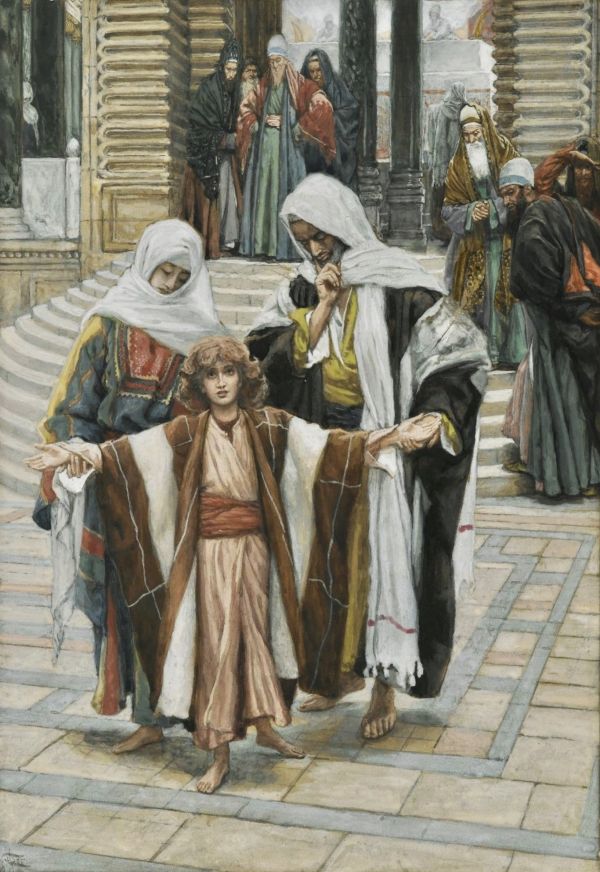Loss and discovery: Salvation in a young and open ‘place’
(Lk 2:41-51)
The Gospel passage is disconcerting because it seems to portray a distracted family and an authentic, surprising, already surly and rebellious Jesus.
Lk is writing more than half a century after the Lord's death and resurrection, and he wants to bring out the character of Faith and inclination of his communities still in search.
The bloody story of the Master had to be understood and internalised in a way that was not immediately apparent; not even to those closest to the Messiah.
It seems that the Holy Family went up to Jerusalem every year for the Passover (v.41).
Our Adolescent shows signs of particular vocation, even before becoming an adult and required to observe the Torah [in Israel, 13 years old].
From the tone of the narrative we note a Jesus eager to feed and immerse himself in the still unexpressed Mystery of the Father.
Dreaming of discovering his Will, he stayed in the holy city to fully understand the Word of God - without being satisfied of impersonal, abbreviated catechisms.
First expressions of Jesus in the third Gospel mark the character of his whole story.
He firmly detached himself from the religiosity of the ‘fathers’ (v.49).
The Lord begins to distance himself from ideas common even to his family of origin: he does not belong to a definite clan.
His will be a divine proposal in favor of all the women and men of the world.
So Jesus has even more honoured the fidelity to God of his parents (vv.51-52) by accepting the whole spirit of their teachings, and digging further - sensing their ultimate meaning.
As if to say: in Him the sacred Scriptures become accessible, with the reading’s key of his whole story and Person.
Life for us - even before Baptism and public events.
Lk writes to encourage believers who did not yet fully understand about personality [and dramatic outcome] of the new Rabbi.
Like Joseph and Mary, they had to realise that it is not easy to understand the Son of God and accept his uniqueness of character, even to the point of earthly defeat.
In the figure of the Holy Family, we too are invited to «return to Jerusalem» (v.45).
Well, observing the autonomy of Christ, we will gradually be able to open ourselves to the unprecedent vocation that we carry within us - because we are ‘born again’ in Him.
And in the face of disconcerting events, we will learn to guard the personal Call - like Mary.
Because She too did not find it easy to enter in her Easter: the ‘passage’ from the religion of traditions and common expectations to the Faith in the Son.
But She «preserved through» Word and events (v.51b), without stopping halfway.
The movement of Salvation familiarizes everyone in the dynamics of bewilderment [from narrowness] and finding [of a Presence within the different presences] in order not to narrow the horizons.
[Immaculate Heart of the Blessed Virgin Mary, June 8, 2024]












